Iran Archive
Free Newsletter

The Baghdad talks between Iran and the P5+1 bloc, made up of the five permanent U.N. Security Council members plus Germany, seeking to resolve the impasse over Iran’s nuclear program ended with no solution reached but a commitment to meet again in June in Moscow. The foreign policy chief for the European Union, Catherine Ashton, expressed cautious optimism, observing, “It is clear that we both want to make progress, and that there is some common ground.” Most of the commentary on the negotiations has focused on the technical aspects of the diplomacy involved. In this first stage of talks, the […]
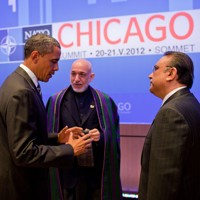
Editor’s note: This is the second in a two-part series examining the challenges to reaching a sustainable peace in Afghanistan. Part I examined the domestic challenges to national reconciliation. Part II examines the regional context of the Afghan peace process. When NATO leaders gathered in Chicago earlier this week for a much-awaited summit, the withdrawal strategy for Afghanistan dominated the proceedings. A twist in the plot had developed in the lead-up to the gathering when NATO extended a last-minute invitation to Pakistani President Asif Ali Zardari. The logic was straightforward: The occasion would be used not only to reach an […]
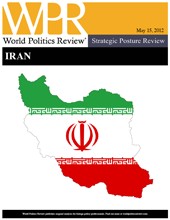
Amid the turmoil that has engulfed the wider Middle East over the course of the past year, Iran has been confronted with numerous challenges and some opportunities. Not surprisingly, the top priority for the Iranian regime remains its own survival. The main threats in this regard stem from external military intervention, internal unrest and increasingly, over the past year, strengthened international sanctions in response to its nuclear program. In order to counter these threats, Iran continues to invest in asymmetric, niche capabilities that play to Iran’s strengths while exploiting the vulnerabilities of its high-tech adversaries. The regime has also embarked […]
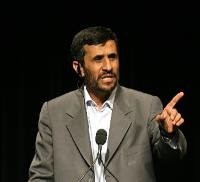
In the run-up to the next round of negotiations between Iran and the P5+1 group on May 23 in Baghdad, reports have suggested that Tehran is prepared to make substantive concessions on its uranium enrichment program. Political paralysis in Tehran, however, will be an obstacle to reaching any definitive decision, meaning the Baghdad talks could prove as inconclusive as previous ones. Not that Iran doesn’t need a deal. Crude oil exports are at a 20-year low due to the threat of U.S. financial sanctions on third-party purchasers. Domestic supplies of gasoline are in short supply, too, as rising sanctions prevent […]

There has been a flurry of decidedly unpublicized diplomatic activity ahead of the next round of Iran nuclear talks in Baghdad on May 23, much of it taking place in the shadows. The European Union’s Helga Schmid and Iran’s Ali Bagheri — the no. 2 nuclear negotiators for the P5+1 and Iran, respectively — met quietly this past week to begin preparing the agenda for the Baghdad meeting. In keeping with the conviction that progress can be more easily achieved outside the glare of the spotlights, European diplomatic sources who confirmed the meeting would only say that it did not […]
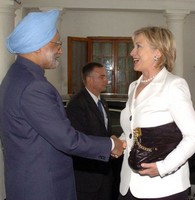
A fascinating display of diplomatic balancing occurred this past week in New Delhi. At the same time that U.S. Secretary of State Hillary Clinton was in India to urge the Indian government to tighten sanctions on Iran, an Iranian trade delegation was there exploring ways to circumvent those very sanctions. Over the past year, India has found creative ways to “split the middle” in attempting to maintain good relations with both Washington and Tehran. State-owned refineries have reduced the amount of oil they purchase from Iran, in an effort to bring India into compliance with U.S. legislation that calls for […]
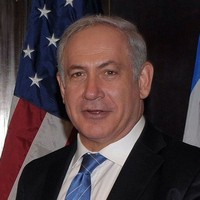
Announcements made at 2:30 a.m. usually come as a surprise, and the one made Tuesday night by Israeli Prime Minister Benjamin Netanyahu was no exception. Israelis rubbed their eyes, trying to make sure they had heard correctly: Netanyahu upended the country’s political chessboard by making a deal with the largest opposition party. Early elections, which had been expected in September, were canceled. Suddenly, Israel no longer has a rightist government. Most importantly, the deal with Shaul Mofaz, the newly elected head of the centrist Kadima party, has pulled the rug out from under the extreme-right parties. This is one for […]
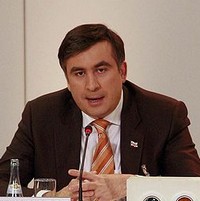
Despite parallel histories and a concerted push on both sides to forge lasting ties over the past decade, it is apparent today that Georgia and Israel face very different geopolitical concerns and increasingly conflicting national interests. Indeed, their partnership, which once seemed so natural, now looks permanently derailed. After Georgia’s 2003 Rose Revolution propelled a new generation of Western-educated modernizers to power in Tbilisi, the country sought to leverage its 130,000-strong diaspora in Israel for investments and partnership. Georgian officials praised Israel as a model and frequently drew comparisons between Israel’s difficult journey to statehood and Georgia’s ongoing conflicts with […]
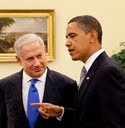
Top Obama foreign policy adviser Denis McDonough told a Washington security conference Sunday that the White House believes its policy toward Iran is working, characterized Obama’s relationship with Israeli Prime Minister Benjamin Netanyahu as “workman-like” and said Obama’s foreign policy is defined by a clear-eyed pragmatism that is largely nonpartisan and un-ideological. “We are not asking for more time to let negotiations [with Iran] work because we are betting on negotiations,” McDonough told a conference convened by the Washington Institute for Near East Policy, a Washington think tank. “We are saying something different,” he continued. “We believe the policy we […]
The Gulf Cooperation Council’s Joint Peninsula Shield regional security alliance held a joint naval exercise Sunday and Monday in the Persian Gulf, amid heightened tensions over the recent visit by Iranian President Mahmoud Ahmadinejad to Abu Masa, one of three disputed islands in the Gulf claimed by both Iran and the United Arab Emirates. In an email interview, Kristian Coates Ulrichsen, a research fellow at the London School of Economics, discussed the naval capabilities of the GCC countries. WPR: What are the relative naval capabilities, in terms of fleet makeup, training and preparedness, of the Gulf Cooperation Council countries? Kristian […]
